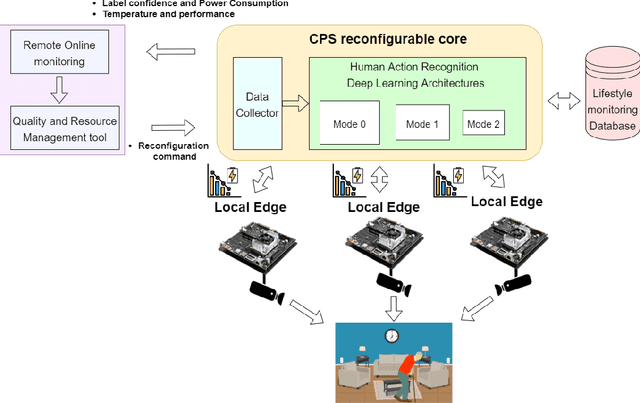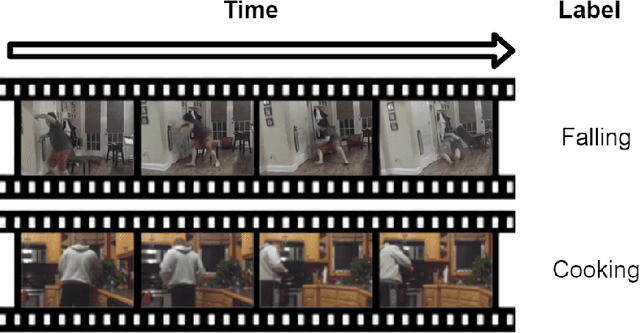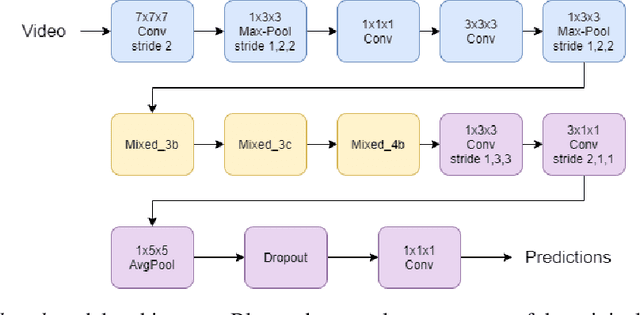Juan Isern
Reconfigurable Cyber-Physical System for Critical Infrastructure Protection in Smart Cities via Smart Video-Surveillance
Nov 29, 2020



Abstract:Automated surveillance is essential for the protection of Critical Infrastructures (CIs) in future Smart Cities. The dynamic environments and bandwidth requirements demand systems that adapt themselves to react when events of interest occur. We present a reconfigurable Cyber Physical System for the protection of CIs using distributed cloud-edge smart video surveillance. Our local edge nodes perform people detection via Deep Learning. Processing is embedded in high performance SoCs (System-on-Chip) achieving real-time performance ($\approx$ 100 fps - frames per second) which enables efficiently managing video streams of more cameras source at lower frame rate. Cloud server gathers results from nodes to carry out biometric facial identification, tracking, and perimeter monitoring. A Quality and Resource Management module monitors data bandwidth and triggers reconfiguration adapting the transmitted video resolution. This also enables a flexible use of the network by multiple cameras while maintaining the accuracy of biometric identification. A real-world example shows a reduction of $\approx$ 75\% bandwidth use with respect to the no-reconfiguration scenario.
* 13 pages, 8 figures and 5 tables
Reconfigurable Cyber-Physical System for Lifestyle Video-Monitoring via Deep Learning
Oct 07, 2020



Abstract:Indoor monitoring of people at their homes has become a popular application in Smart Health. With the advances in Machine Learning and hardware for embedded devices, new distributed approaches for Cyber-Physical Systems (CPSs) are enabled. Also, changing environments and need for cost reduction motivate novel reconfigurable CPS architectures. In this work, we propose an indoor monitoring reconfigurable CPS that uses embedded local nodes (Nvidia Jetson TX2). We embed Deep Learning architectures to address Human Action Recognition. Local processing at these nodes let us tackle some common issues: reduction of data bandwidth usage and preservation of privacy (no raw images are transmitted). Also real-time processing is facilitated since optimized nodes compute only its local video feed. Regarding the reconfiguration, a remote platform monitors CPS qualities and a Quality and Resource Management (QRM) tool sends commands to the CPS core to trigger its reconfiguration. Our proposal is an energy-aware system that triggers reconfiguration based on energy consumption for battery-powered nodes. Reconfiguration reduces up to 22% the local nodes energy consumption extending the device operating time, preserving similar accuracy with respect to the alternative with no reconfiguration.
 Add to Chrome
Add to Chrome Add to Firefox
Add to Firefox Add to Edge
Add to Edge